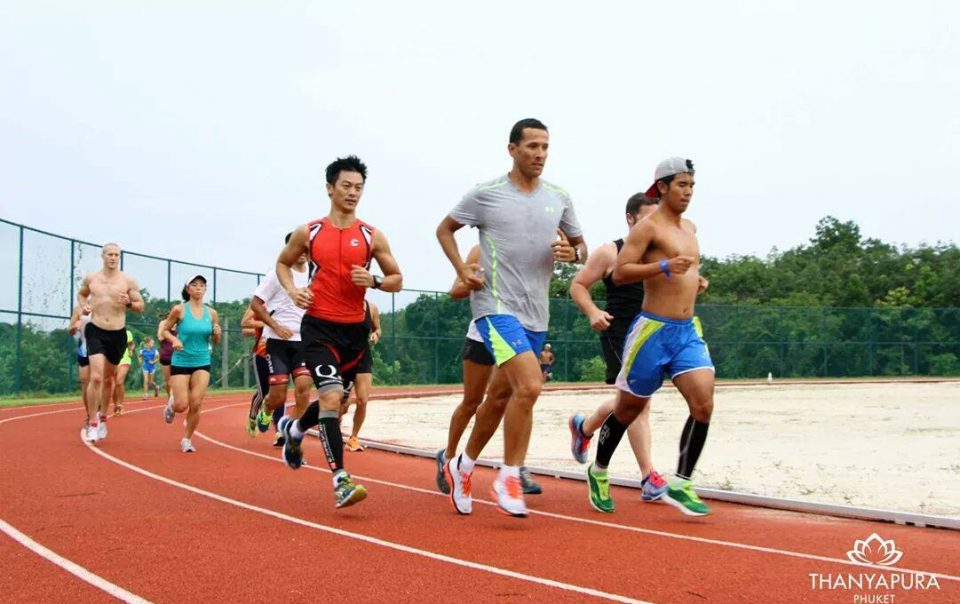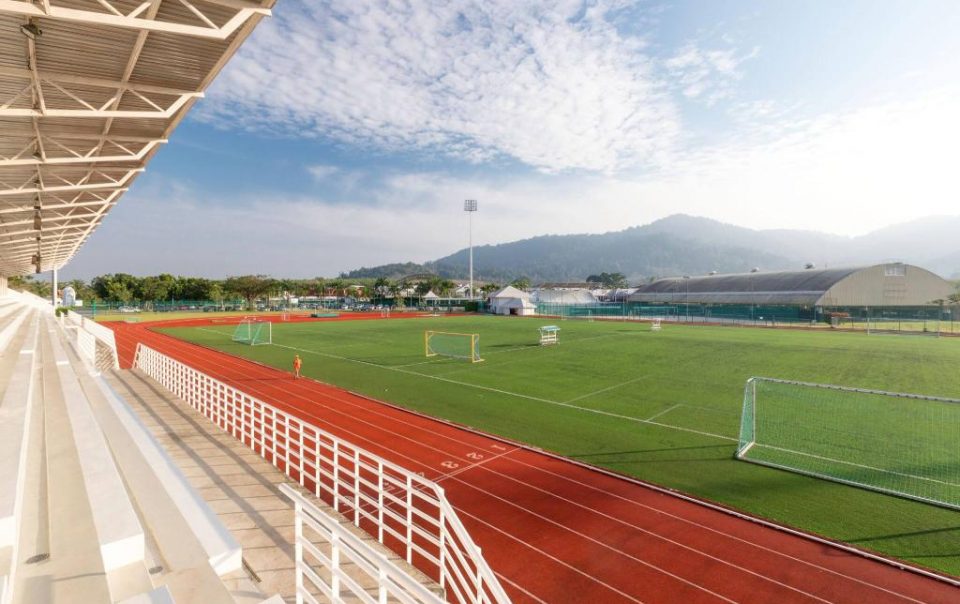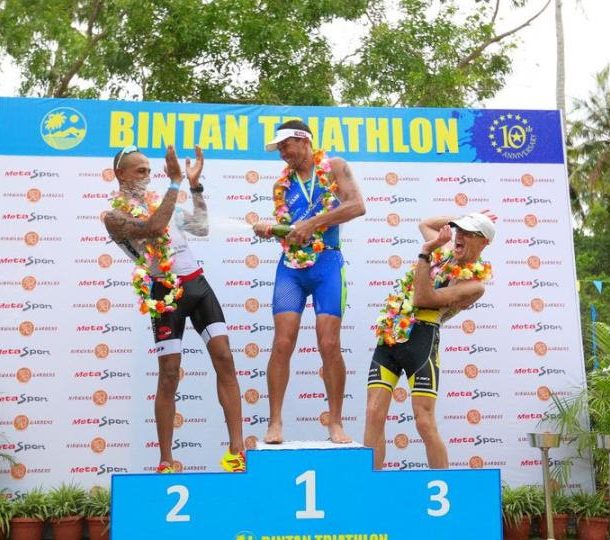
RUNNING FOR LIFE I grew up near the beach in southern Sydney, Australia. My brothers and I lived, ate and breathed surfing. I always dreamed of being a professional surfer but my Dad shut down the idea. He was a waterside worker – a “wharfie” – with zero education and Mum was a schoolteacher. Dad was determined his kids would have an education and was completely anti-sport as an occupation.
In my teens I wanted to be a better surfer so Dad said I should start running. It’d make me fitter, he promised, so I ran my guts out. At high school I was good; I won my first state title in cross-country running aged 13, the Australian title at 15 and continued then every year after that. But we had zero idea; I had the wrong shoes – I’d run in Converse. And I was embarrassed – my brothers told me running was geeky. But I loved winning. Coaches said I could go to the Olympics. It wasn’t until Dad realised I could pay for my education through running that he encouraged me. I got the Ben Lexcen scholarship at the University of New South Wales (awarded to students of outstanding ability in sport) and studied economics.
LOSING TRACK I remember watching the 1987 Kona (Ironman) World Championship on TV. It was held in Hawaii, home of the best surf. I got my hands on some triathlon magazines afterwards, but it wasn’t until I watched my first triathlon in 1991 that I got the idea to compete. I won my first race and A$500 – a lot for a 17-year-old. Soon after I won the Canberra triathlon. Everyone wondered who I was. They thought I cheated. I went to the Junior World Championships in 1993. I was winning the race and, as I came down the finishing chute, I thought I had it in the bag and stopped to high five people. Three guys ran past me and I ended up fourth. It’s been folklore in Australian triathlon ever since. I was offered a contract in the same year to compete professionally, but Dad put his foot down. He insisted I finish university.
WORKING IT OUT After university I worked as an accountant. I remember seeing all these guys on TV whose arses I used to kick, making money and travelling the world while I was stuck in an office. I quit the next day. I didn’t tell Dad for two weeks. I’d get up in the morning, put my suit on and he used to drive me to work for a job I no longer had. I flew to Paris two weeks later with A$3,300 to my name. I found races and would compete Friday, Saturday and Sunday. I needed the money. I was so homesick. I spoke zero French and didn’t talk to anyone. But I knew if I went home, my brothers would give me a hard time and Dad would have said, “I told you so.” I got a lucky break at the 1995 International Triathlon Union World Cup in France. I beat everyone. I was offered a wild card for the next race in Canada. I won that, too. That’s when it all started.
COPING WITH LOSS By 1997 I was world No1. I came back to Australia to compete in the World Championship in Perth. Dad came to watch when I won. That was the moment; two years of desperation not to disappoint Dad. Just before the second trial for selection for the Sydney 2000 Olympic Games, my Mum passed away. Her funeral was on a Friday and the trials were on the Sunday. Because of the selection criteria, I had to win it. I was devastated; I felt like the worst son a mother could have: I’d been away, I felt guilty. Dad told me to race and I was doing great until someone in the crowd called out, “Macca, do it for your Mum.” It broke me. I stopped, sat on the gutter and cried. They didn’t select me for the team; they said my head wasn’t in it.
WINNING FORMULA After that, I moved to the United States. I started racing like crazy. I had a massive chip on my shoulder. The Triathlon Federation of Australia asked me to compete at the Athens Olympic Games in 2004. After a fight with the national coach he asked me where I was going to go. “Ironman?” He said I was too young. I said, “We’ll see.” I won my first Ironman Australia in 2002 and defended the title for four years straight. I used to win everything but never Kona. I was too big and it was too hot. Ironman guys are between 59kg and 65kg; I was 78kg. Everyone said it wasn’t possible. I started second-guessing my ability. For the 2007 Kona I overhauled my training. I embraced my fear of the heat and trained like mad. I would go to Hawaii and do 30km of swimming, 1,000km on the bike and 130km a week of running on repeat. I used to make myself paranoid and angry. People used to think I was too serious; of course I was serious, it was my life. I played defensively that year and conserved myself. It worked – I won. I always believed I could but it takes a lot of courage to do things differently when you have a working formula.
THE DOPE ON LANCE I was going to take on Lance Armstrong when the doping charges came out. I’ve known Lance a long time; I used to race him. I always picked on him and called him a cheat. He had such a low VO2 Max (oxygen consumption), it didn’t stack up. And that’s how we fell out. We fought our whole career. The public didn’t know. The sport knew. We all knew. The public didn’t want to know.
FAMILY MAN I was selected to represent Australia in the 2012 Olympics. It’s the best thing I’ve ever done but I just wasn’t good enough. I was the same age as some of the kids’ parents. I don’t regret my chance at the Sydney Olympics. I let it go years ago. I have my first job in 17 years. I am now the executive chairman of Thanyapura Phuket in Thailand, a high-performance training resort attached to an international school with an international baccalaureate programme. I’m still competing and training, but here I have the ability to develop the next generation of athletes in Asia. Right now my responsibility is to my family. It’s not about me anymore.
Read full article on South China Morning Post.
Philosophy
“Great things happen to people who make great things happen.”
Navigate
chris@macca.com
Terms & Conditions
Privacy Policy




